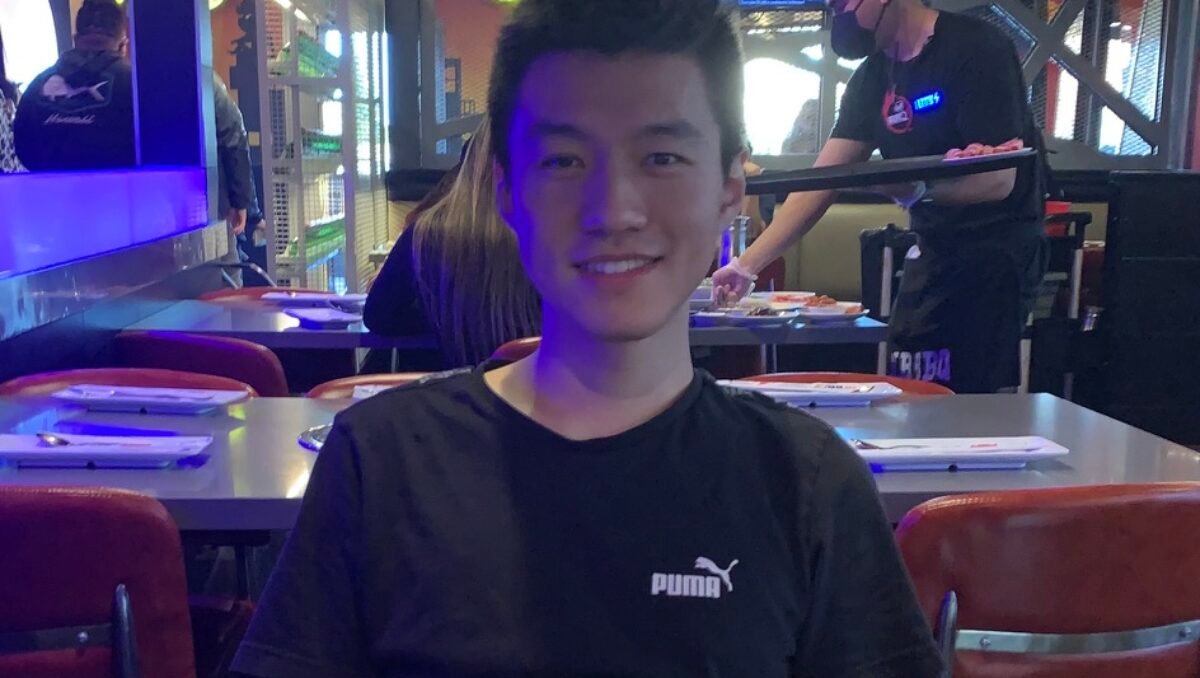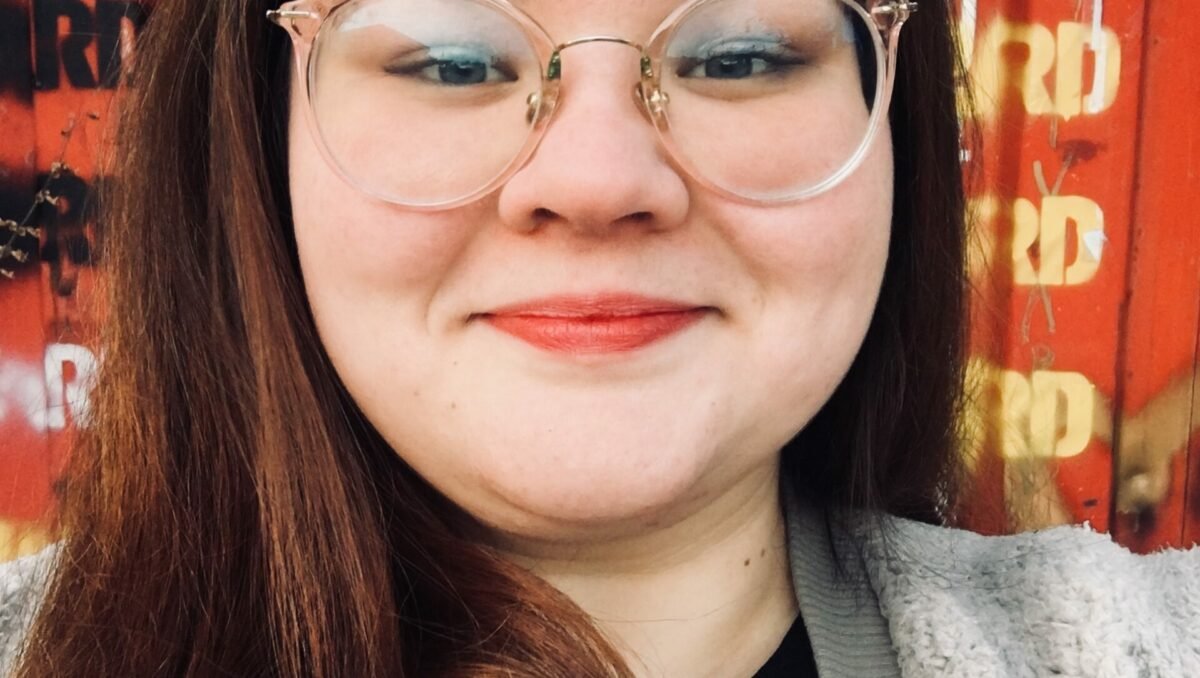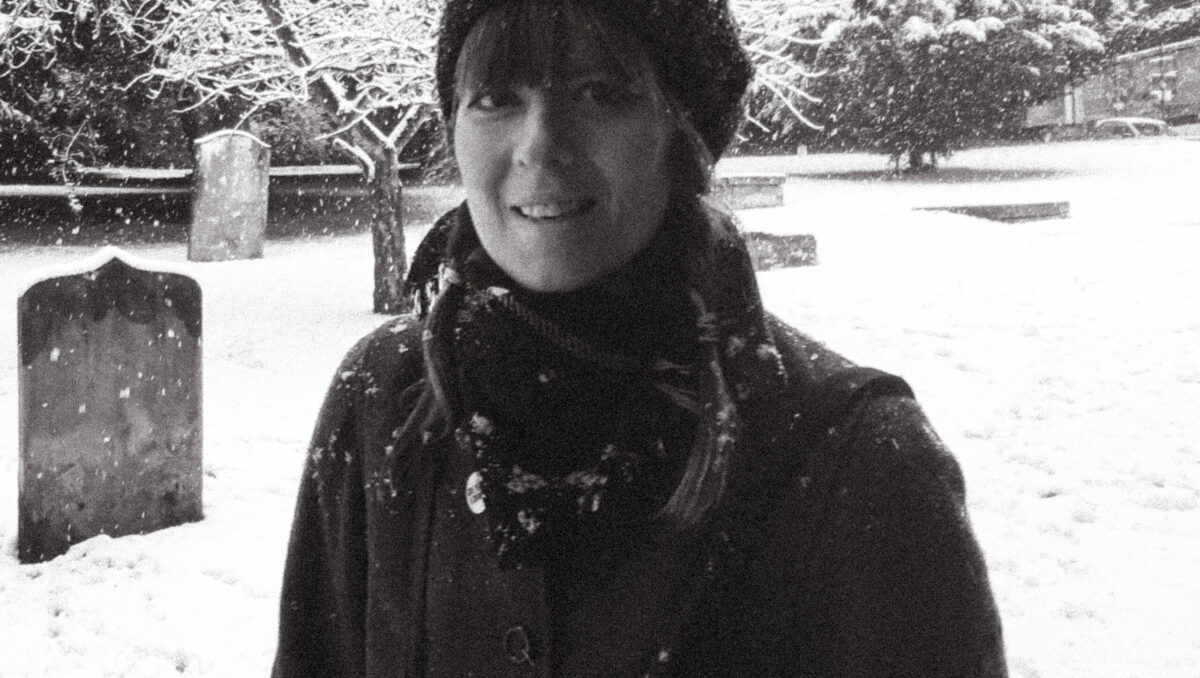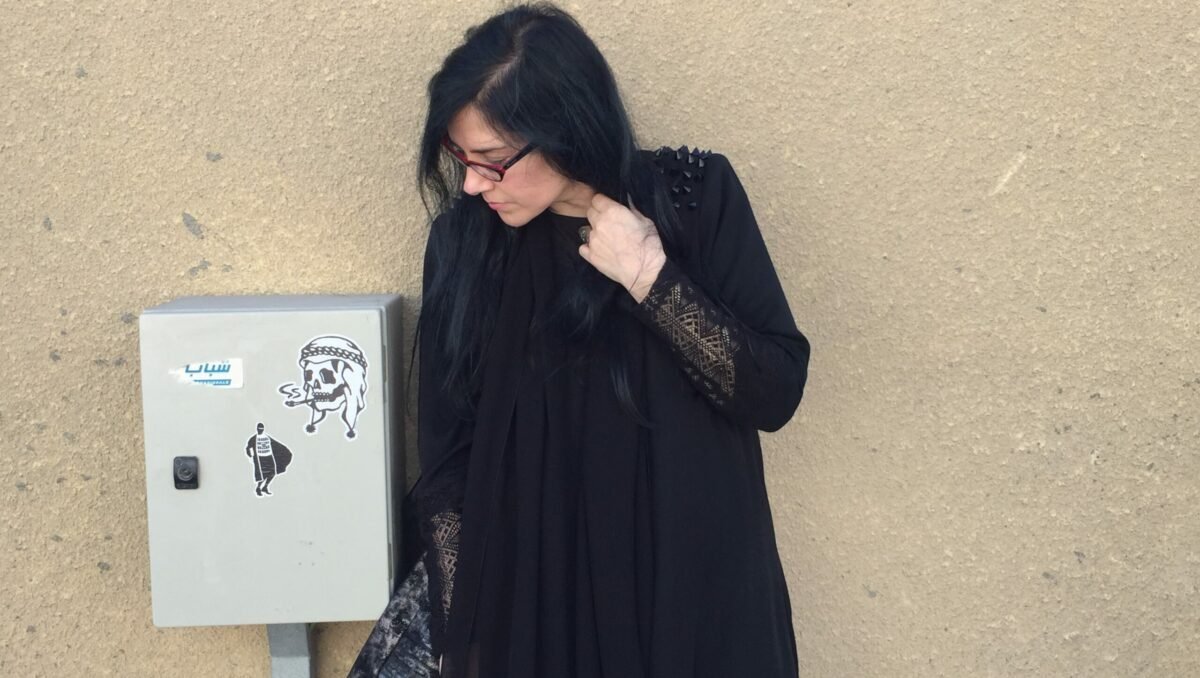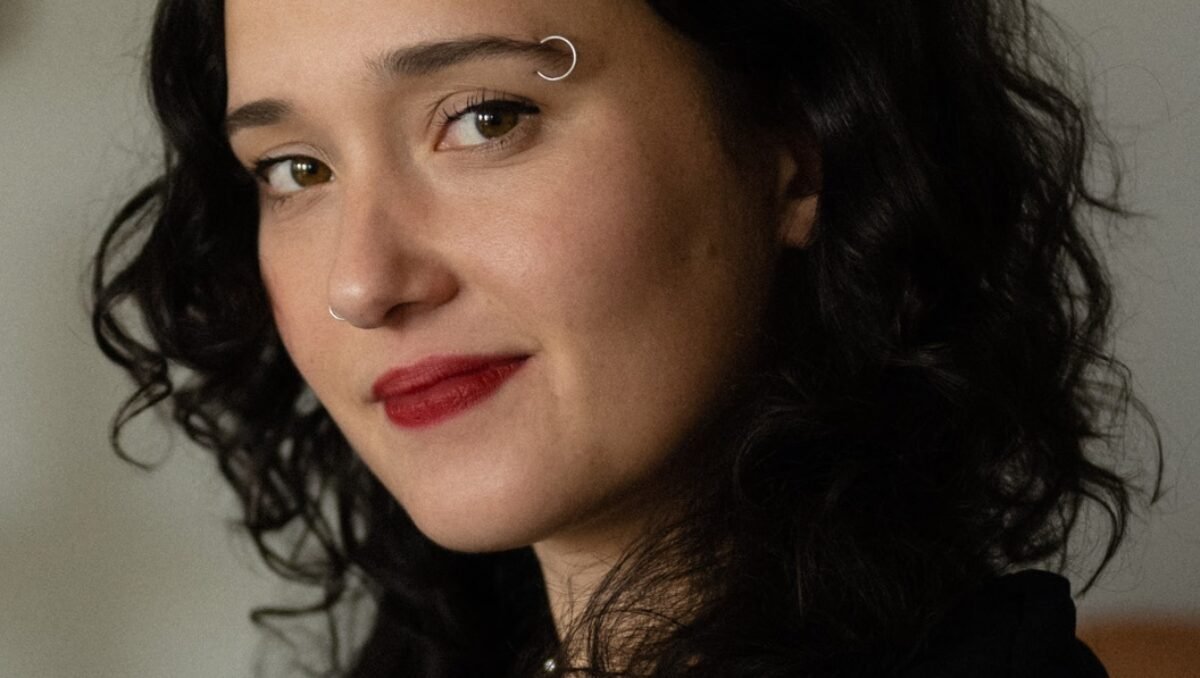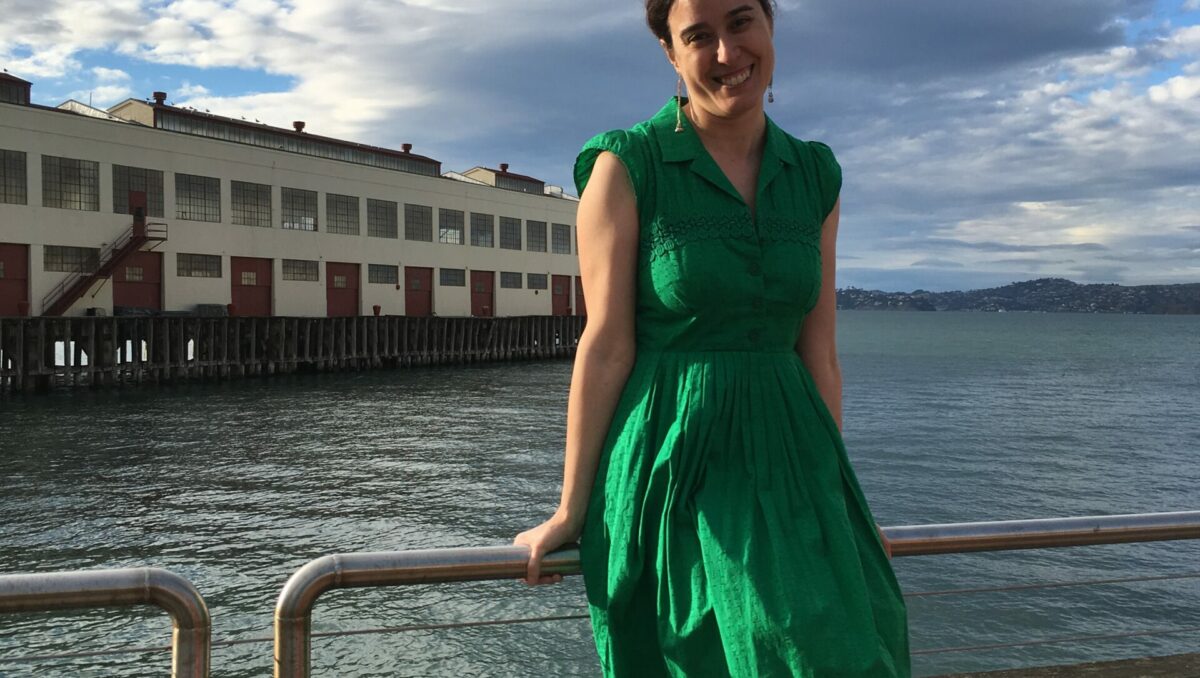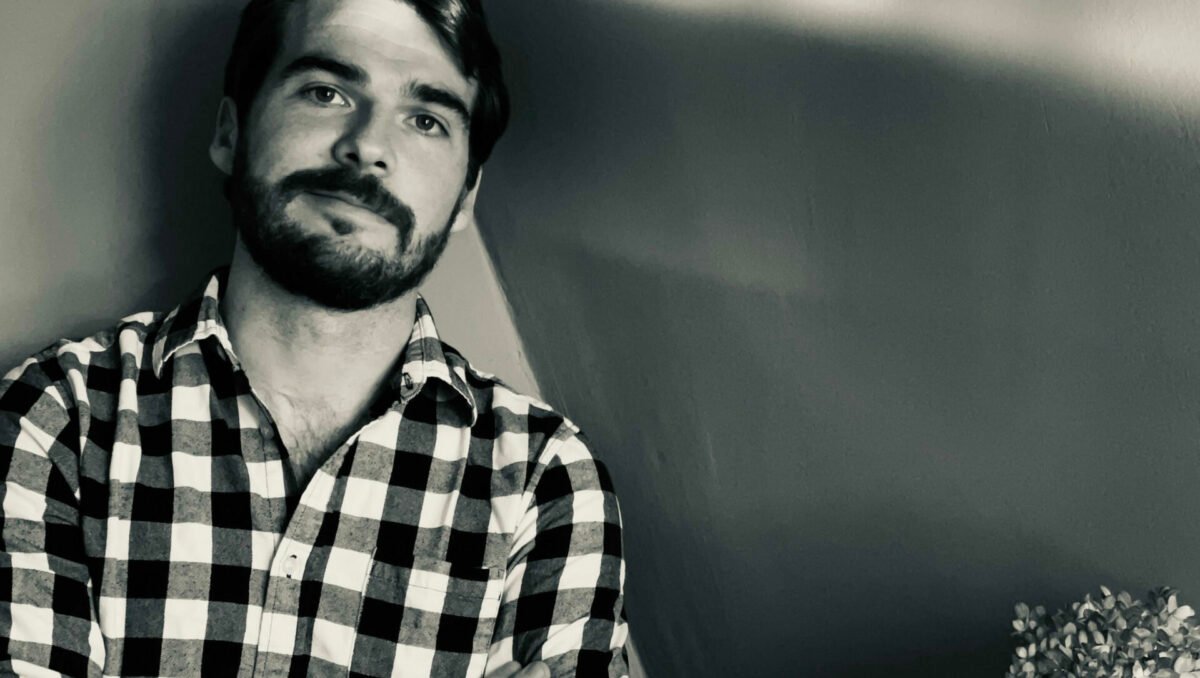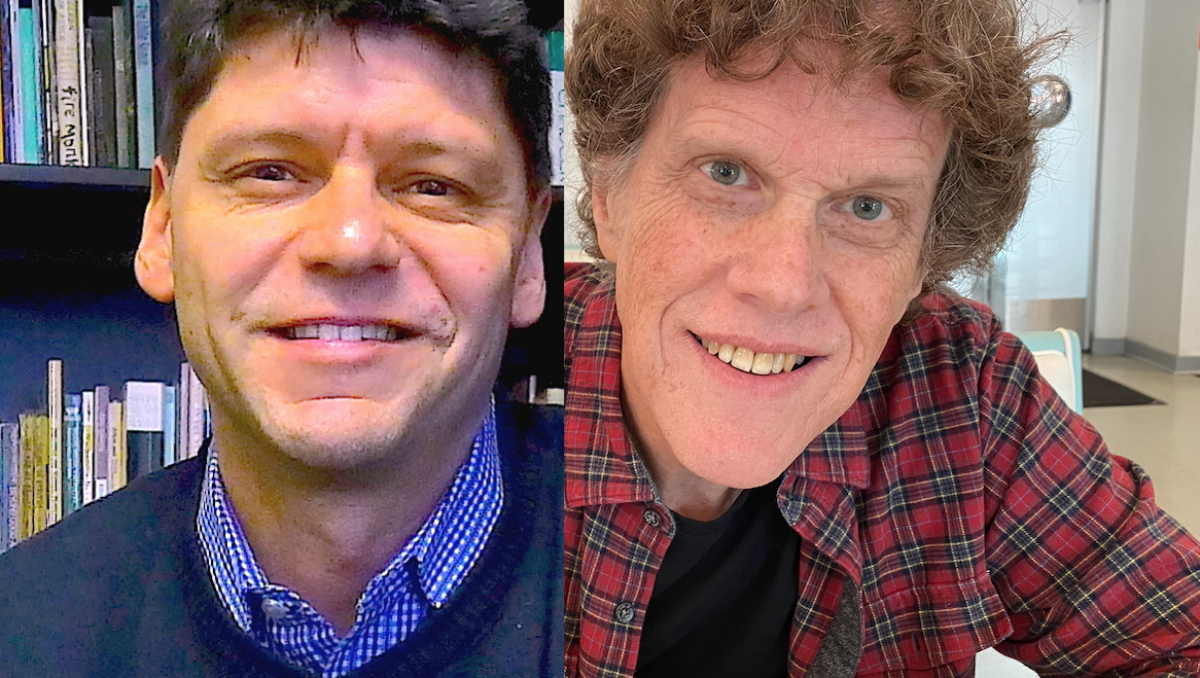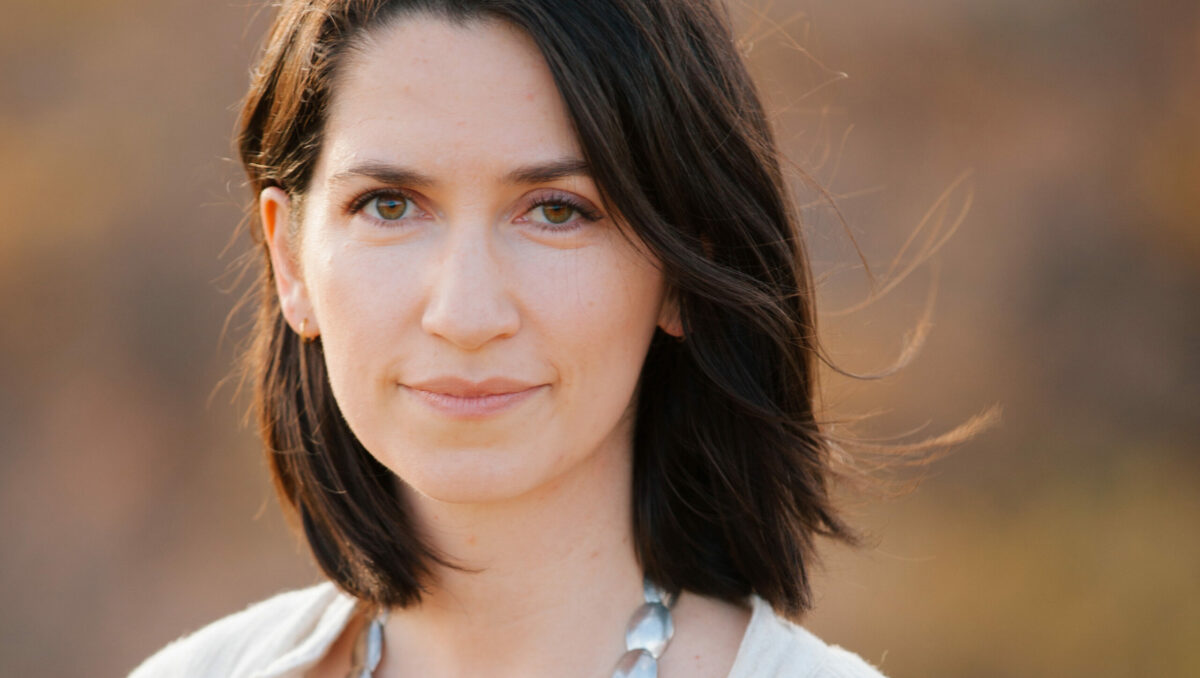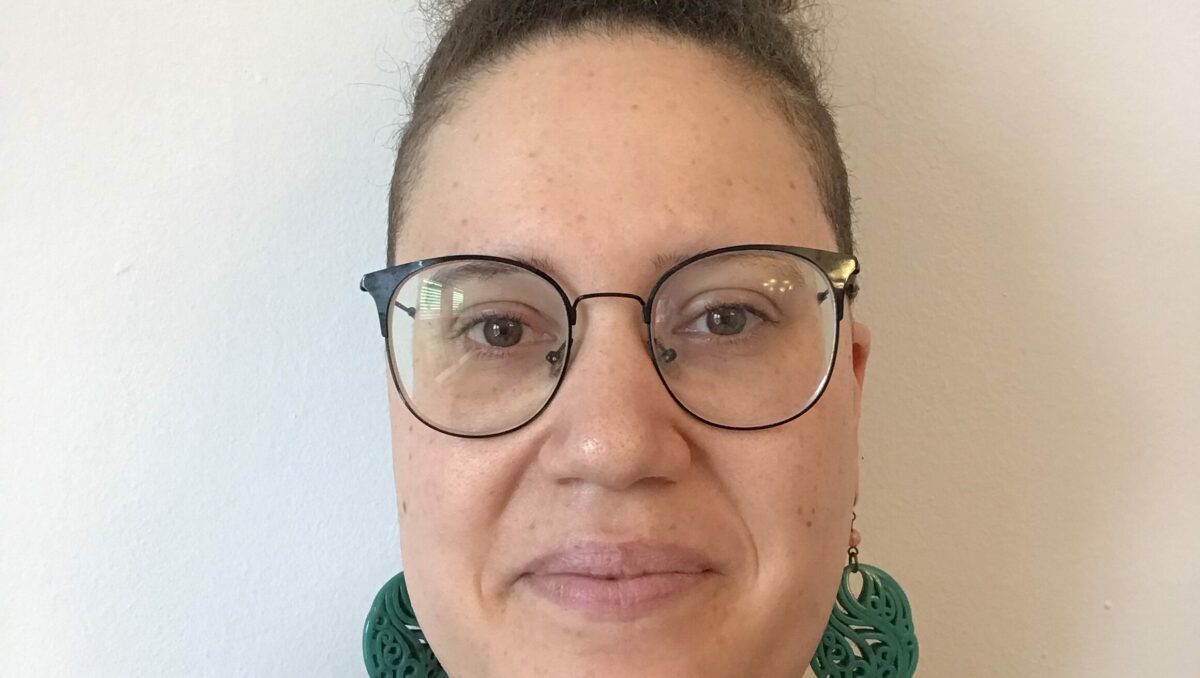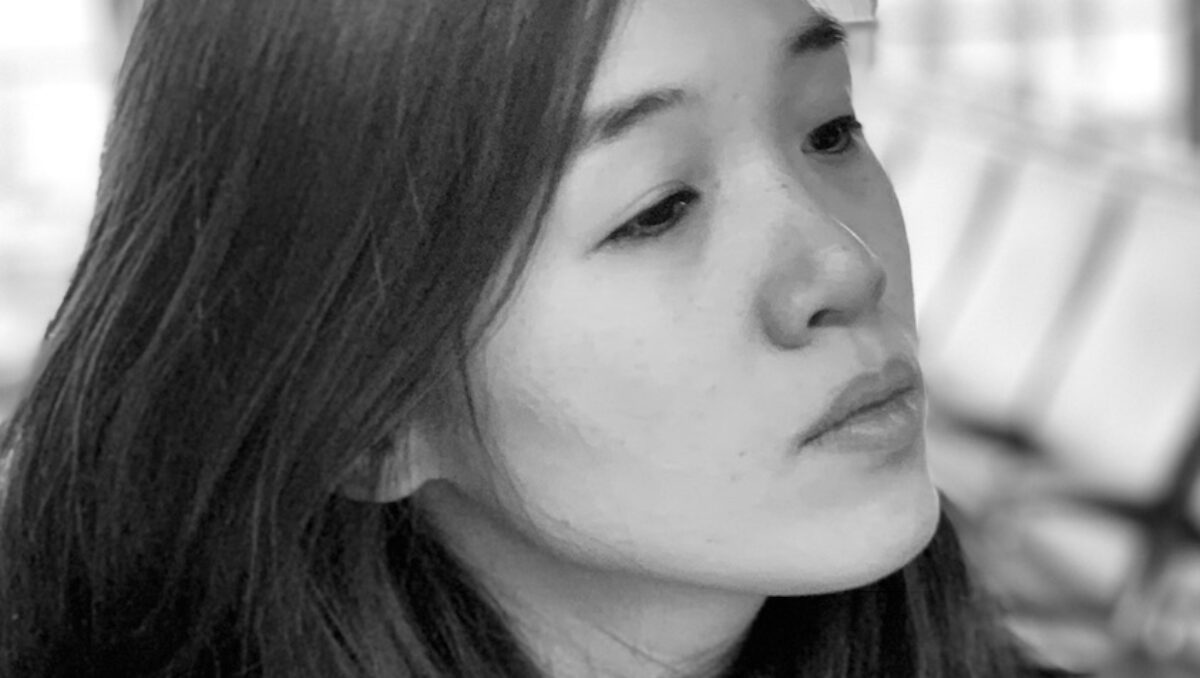THE LEAST AMERICAN FACE by M. Y. Li
The event is in thirty minutes. You don’t really know what it is. The leader of your Erasmus group said something in Spanish about a trip to a traditional Moroccan venue. But did he say the place is a restaurant or a themed bar? Your Spanish isn’t great, but it’s good enough to make out the dude’s suave accent, which is so much more intelligible than the Andalusian tongue in Seville, where you’re studying abroad this semester. What happened was earlier on the bus a French girl was chatting with you when the announcement was made. As you guys giggled and touched, you were wondering if she could indeed be into an Asian boy like you. If your appeal was in part indebted to K-pop. If you might have a shot with her tonight. And she’s French. The first French girl you’ve flirted with.
You’re in your hotel room. Your two roommates are nowhere in sight. One of the guys is your best friend here. He’s from Munich. Not a very tall man. You can embrace him from behind and have your chin rest effortlessly on his cap. He always wears a hat for some reason. His hair is not bad. Short and black just like your Chinese hair. He’s easily the nicest dude you’ve met in Erasmus, the group that organized this trip across the Mediterranean for a couple dozen international college students studying abroad in Seville. What makes you appreciate him, though, is that he always fantasizes about getting girls galaxies out of both your leagues. He’s probably in the gym right now, getting that final flex. The other roommate is Swiss. He’s from some French-speaking region whose name you’ve forgotten. He’s also short, and you guys have only talked like twice. You don’t know much about him apart from the fact that he’s boning the hot Peruana who sat behind you on the bus.
There’s a fly the size of a thumb on the skin-colored wallpaper next to your bed. It makes an annoying buzz even when it’s resting. You wonder how many more big bugs are lurking in your hotel room. But still, it’s a nice change of scenery to be here. It feels refreshing to leave Europe after being in Spain for three months. So far, your group has visited the beaches of Tangier, where you played frisbee with the program leader. You two bonded over the backhand toss, which you both agreed was the only proper way to throw a disc. Forehand throws are for noobs. In Asilah, you showed off your music skills on a street piano near a narrow boulevard of markets. One Italian guy, a third-year music major, joined in for a duet of Daddy Yankee’s “Gasolina”. Then came the trip to Chefchaouen, where you snapped pictures of your peers exploring the historical blue stairwells and alleys. In the process, you swapped contact information with several photography enthusiasts from Mexico. Now, it’s day three of your trip, and you guys have just arrived at the city center of Tétouan. You’ve caught everyone’s attention by introducing yourself as an American even though you’re like the most Chinese-looking dude ever. And you just flirted with that French girl on the bus. The last thing you want is to have some big-ass bug in your hotel room to ruin your momentum.
With your friends out of the room, you want to lie back and chill on your bed, which is really just a pull-out couch. Your German friend and the Swiss roommate took the only two legitimate beds while you were trying to pick up a few words of Darija from the sweet hotel receptionist in the front lobby. You didn’t mind though. The couch is near the window and close to the bathroom. It feels tempting now to take out your phone, put on some porn, and wank. Or maybe listen to Jay Chou’s new single and imagine yourself as him, selling out stadiums. Surely at that level, you wouldn’t need to care whether a particular French girl is into you. But at the event, which you think might be at some snooker parlor or sheesha hide-out (after all, the Erasmus leader sounded like he was joking when he said “traditional”), you want to make sure your English comes out properly—as American and normal-sounding as possible. You stare at the flavored tea bags by the microwave. They look enticing in their maroon and shiny packaging, and you want to give them a try. Don’t. At least not now. Tea does something funny to your mouth. You’re not sure how to describe it. It’s like there’s something in it that inhibits saliva and forms a thin layer of tannins over your tongue so your English doesn’t come out right, making your accent all the more obvious. Also, resist the urge to brush your teeth. Toothpaste is like tea. Bad for the tongue. The cheap hotel toothbrush hurts your gums anyway. Don’t find your German friend in the gym. Working out leads to dehydration, which can in turn lead to a dry mouth. Plus, last-minute training won’t get you anywhere. You should’ve gone to the gym ages ago, lazy ass. You reach for the pack of Doublemint in your pocket. There are still twenty-seven minutes till the event. It’s too early to start chewing. Really, you should’ve gotten the hard candies. They keep your mouth watery longer and don’t require you to keep the little wrappers in your pocket like some loser. Whenever you chew gum at a party, you always end up finding a bunch of shiny and sticky clumps in your pockets two weeks later while doing laundry. For now, sip on your ice water and maybe eat a Pop-Tart to get your jaw moving.
As you stare out the window into the busy Tétouan streets, you wonder if drinks will be available at the event. Regardless, you don’t plan on drinking a lot tonight. You wish for something sweet and tame like watermelon juice or pineapple slush. You want to stay sober and get to know the French girl a bit more. Talk to her like you’re in full control. Countless nights out in Seville with your American friends come to mind: at the bars over there, you always go hard for liquor, ordering before anyone else. A rum and coke usually. Sometimes a tinto de verano if you’ve had a long day. The goal is to down the drink as fast as possible without seeming suspicious or like an alcoholic and then blurt out some British English for laughs. You suck at the British accent, really. A Spaniard could probably do it better than you. But that’s beside the point. The point is to hide your real accent altogether. Your American accent sounds weird in a loud venue like a bar. When you raise your voice, you sound like a FOB, an international Chinese student. You never want to sound like that. It’s not that you don’t like international Chinese students or anything. But you’ll always remember the time you first immigrated to the US and a kid in your third-grade social studies class asked you about ration stamps and fake milk powder. This was before either of you knew anything about the world. By the time you went abroad to Spain, you’d already lived in America for twelve years. That’s the only home you know.
Outside the window a group of Asian tourists pass by the street beneath your hotel. They’re carrying bags of souvenirs in their hands, walking in a hurry as they hail a taxi. Due to all the noise on the street, they raise their voices. But the taxi driver seems to be having a hard time understanding them. He shakes his head, drives on. You think back to your professor’s office in the US. A quiet place like that and your bedroom is where your accent sounds nice. There on a good day it’s better than the accent of some Asian Americans born in America, even. It’s soothing and posh, like the voice of a narrator from an audio book. It made you more confident when talking with your professor about his summer trip in Rome. Not that you really cared, of course—you just wanted to pave the way for a letter of rec. It also made you more attractive when talking philosophy to the Asian girl you finally brought home after twenty boba dates. That’s the kind of place you wish the event will take place at tonight. Your professor’s office. Your bedroom. A bar without the music. A place where nobody talks except for you and the French girl.
The Asian tourists try to hail another taxi. They’re now on the street across from your hotel. This time also to no avail. You let out a sigh. You’ve been talking to the French girl in Spanish. Bad Spanish that is, purposely enunciating the er and o endings of words the American way like a sassy bitch. But she’ll want to practice her English with you at the event. After all, you’d told her you’re from California. She’ll want to test you out. To see if you’re a true American. Born and raised.
The door opens with a thud. Your German and Swiss friends come running in with two bottles of Coca-Cola. Listo dude? they say. They grab you by the arms and lead you out the door, into the hallway painted in red, humming “Con Calma.” You check the time on your phone. Still fifteen minutes to go. You pop a slice of Doublemint in your mouth anyway and start chewing.
*
It turns out the event is a visit to an old Moroccan apothecary. You three and your Erasmus group sit on rows of long benches facing the front of the room, where racks of herbs and cream jars stand by a podium. The Swiss guy is sitting next to you. From the peaceful grin on his face, you know he’s done it. You scan the room to find the Peruana with her friends in the second row. She’s changed into a black sweater and sweatpants. Man, can’t these two just keep their hands to themselves for one damn minute? Then the French girl turns to wink at you from the first row. She’s still in the knotted crop tee and denim shorts from earlier on the bus. You wink back with a nervous smile. Staring at her curvy back, you realize how sleek her auburn hair is. If you guys were together, you could caress it all day.
The shop owner walks up to the podium. The guy looks both Moroccan and Latino and is slightly taller than you. He introduces himself and shares an anecdote about the Seville Erasmus group from last year. You can’t help but stare at the black mole by the corner of his mouth. It’s almost as big as the fly in your room.
His voice sounds strained, like he’s forcing himself to be enthusiastic, as he says, Ahora, dónde están mis italianos? A wave of hands pop up in the back row. Out, he says, pointing a finger at the door. The room bursts into laughter. You turn back to see your Italian friends cracking up, too. You don’t get what’s funny but know that if the same joke were made about los chinos, the room would be dead silent, dry as a winter morning. The French girl turns around and shoots you a glance. You fake a smile. She smiles back.
Affirmed by his audience, the owner starts to speak with more energy, calling out every nationality in your group. Y mis franceses? Oui, your French girl and her friends clap in unison. Bonjour, says the owner, bowing his head like a gentleman. Tenemos alguien de Peru? he goes on. The Peruana raises her hand high up in the air, proudly representing like a Congress woman. Ah, siempre temenos una Peruana, siempre, the owner shakes his head in mock disapproval. People start cracking up. The French girl looks back at you again. She’s mouthing something. Bonjour. Or maybe Bordeaux. But why the hell would she mouth Bordeaux to you? You smile and whisper, Bonjour, under your breath. Alguien de los Estados Unidos? he continues. You raise your hand along with the three other Americans. There’s the Mexican American girl whose last name is Garcia. According to your German and Swiss roommates, she looks more Latina than half the Latinas from Latin America on this trip, though she claims to be only a quarter Mexican. You’d spoken to her once in a restaurant in Chefchaouen. There’s the African American guy. He’s twenty-eight and tall as a superhero. He’s really too old for Erasmus. You wonder if he’s on this trip just to bone, too. And then of course there’s the white guy from the Midwest. He’s half an inch shorter than you but in general not bad looking. The owner scans you guys for a good second and points a finger at you. Pero tú no, he says. The crowd goes wild. The loudest wave of laughter yet. You feel your face grow hot. You wonder if you look as red as when you get Asian glow. Where are you from originally? he asks you. It’s his first full sentence in English, and you hate to admit his accent is decent. Mis padres y yo somos de Beijing, you whisper like a mute. Now that everyone’s attention is on you, you’re too afraid to respond in English. All you really need to say is you were originally from Beijing but grew up in the States. It’s a simple statement, and you could’ve spoken it perfectly with or without your accent. But your confidence has already disintegrated.
Vale. Now let me introduce you guys to the Moroccan mint tea, he says with a huge smile. He pulls out a bag of leaves from the shelf. It’s obvious the dude has achieved his intention of warming up the crowd. Now he can go on advertising his products. You love Moroccan mint tea. You’ve had it for breakfast the past two days. You would love to hear the history behind it and grab some for your host mom in Seville and your real mom in California. But your mind is not here anymore. You keep on telling yourself it’s all right. Imagine if you were actually born in the States, how much more would that innocent joke have hurt? Plus, everyone is paying attention to the dude now. They’ve probably already forgotten about your embarrassment. But the French girl. She’s not turning around anymore. No more winks or smiles. All you can see is her back. Her gorgeous auburn hair.
Almost as an afterthought, you wonder how things would’ve turned out if when the shop owner asked for the Americans, you didn’t raise your hand. The French girl probably wouldn’t’ve even noticed. And if he goes on to ask, Dónde están mis chinos? you could proudly raise your hand and say, Ya sabes donde estoy, soy el único. Maybe the crowd would cheer you on. And you’d be the originator of a joke instead of the butt of one.
There’re still two days left in the Moroccan trip. Tomorrow you guys will be heading to see the beach and golf resort near Martil. You don’t have to sit next to the French girl again. You can sit toward the front of the bus, next to the Erasmus leader. He’s a nice guy who won’t judge you for anything except the wrong way to throw a frisbee. You can still volunteer to be the group’s photographer and relish the beauty of the country that stunned you when you first arrived in Tangier.
The shop owner says something else that cracks up the room. This time you laugh too, even though you have no idea what he said. You think about the minutes you’d just spent in your hotel room preparing the perfect American accent only to speak Spanish. You can’t help but laugh again, for real now. It isn’t the first time you’ve been rejected, and it won’t be the last. Tonight, you’ll go to bed early to prepare for the long day tomorrow. You’ll want to wank, except your roommates will be in the room as well.
MEMORY FIELDS by Liz Howey
The orchard is beautiful. Meets the postcard standard of picturesque, as promised. Lines of foliage haloed by the rising sun, shades of green and brown and golden red, and for a second Maggie slips, imagines her and Brendon and a child that won’t exist. A little girl—no, a boy, a little arrogant boy, a mini-Brendon. She imagines Brendon lifting their phantom son to pick an apple, round cheeks dimpled by matching smiles, and thinks, yes, God, wow, the orchard is so beautiful. Too beautiful, really, because nothing hints at the section in the far back, the bodies curled deep in the dirt beneath.
Maggie turns from the orchard, looks at Brendon still in the passenger seat of their car, one of his long legs thrust out into the gravel of the parking lot, the other limp in the footwell. She reaches for his bowed head, runs her fingers through his thinnest patch of hair. “Jus’ a min’,” he says, panting through syllables. He leans forward, and Maggie doesn’t know if he’s leaning into her, if he wants her hand on his scalp, or if he’s just trying to get his head between his knees to gasp through nausea. But he doesn’t say either way, and Maggie can’t bring herself to ask.
*
It’s not a day for jokes, but once Brendon manages to stand, he can’t help himself. He grins, he chuckles, he pretends to gag when Maggie holds her palm out to a cow. While they wait for the owner of the orchard to meet them, Maggie circles strawberry scented hand sanitizer into her skin. Brendon says, “Can you imagine if I just dropped dead right here? That’s a discount, right? Just toss me in a wheelbarrow, save on gas.”
Her therapist suggested he makes people uncomfortable as an assertion of control, a way to cope, but when Maggie asked what it meant that he tries to make her uncomfortable, that he laughs about dying as if she should join in, that he’d make her drive two hours to visit his bio-grave, her therapist said, “What do you think he expects from you? Both now and then later, after he’s gone?” But Maggie still has both sets of grandparents, the tabby she rescued as a teenager: she’s never known death this intimately. The last year’s been nothing but stumbling, trying to keep her chin high even as Brendon started considering arrangements like a child marking up a Christmas catalogue.
To her therapist, she said, “I think he needs me to be there for him,” and last night, to Brendon, as she threw a book so hard at the living room floor its spine split, Maggie yelled, “Do you always have to ask for so much?”
*
Maggie remembers when cancer became tangible, when it took on shape and morphed into something that looked like her husband. When the doctor spoke and Brendon nodded, when Brendon took off his hat to put it back on, when Brendon pulled and pinched at the navy brim until his hand collapsed, knuckles tented over his eyes. As he cried, Maggie pressed her fingers to the back of his neck and felt neither of their bodies.
Her first thoughts had been practical: the warehouse was always desperate for workers and Brendon was their best. They’d take him back when this was all done, no problem. Of course, she’d had no idea what sick leave would look like, and that was something to consider in their budget, what with the new house that wasn’t new at all, with its faucets that constantly spat water and wiring that slurped electricity. The empty room just off their bedroom would stay barren despite their plans the year before, but that was alright, that was fine. There’d be time to regroup. They would change, the both of them, because treatment attacked more than just the illness, and chemo took hours, the clear and brown bags draining slowly above their heads as they flipped through fuzzy cable on a tube TV, but it wasn’t all terrible. Brendon said, “Lemonade out of some really shitty lemons, huh, babe? We have dates scheduled every other week now, no excuses. You bring the champagne flutes; I’ll swipe the ginger ale. Maybe I’ll feed you some pudding, yeah? All sexy like? Here comes the airplane, baby.” Maggie loved that, his warm stupidity, his optimism. He sat in the cushioned recliner with her next to him in the stiff-backed chair, and they laughed as chemicals roiled through his body, bickering in good spirits over what to watch. Brendon protested that Cheaters wasn’t a romantic choice, though Maggie disagreed, saying, “It puts our life into perspective! We’re here, together, Joey Greco nowhere in sight—isn’t that promising? Look at us, so good at being married.” Everything would be okay, she thought, because thirty-year-olds get cancer, sure, but they don’t die.
Now, seated in the back of a golf cart, the owner of the orchard jostling them over root and gravel, Maggie keeps her palms flat on the vinyl cushion under her thighs. She wonders if there’s a world where Brendon left her out in the waiting room for that very first doctor’s appointment, where he smiled at her with dried eyes, where he lied, where he said everything was fine and then valued her needs over his. Where he packed a bag in the middle of the night, kissed her forehead sweetly while she slept, then disappeared into a spill of moonlight and started a new, temporary life. It’s silly—if he’d done that, she would’ve tracked him by his credit cards, would’ve still ended up here, in this orchard, this would-be-graveyard—but the imagined gesture makes her feel the most loved she’s felt since… Well, she doesn’t know, because feeling loved isn’t as important as proving the depth of her own.
Today, she’s doing her best, though the sway of the golf cart curdles the breakfast in her belly. Last night’s fight lingers. She wants to nurse her anger, but that’s not allowed anymore, so she keeps it behind her teeth, swallows until her tongue tacks to the roof of her mouth.
At their last chemo session, after they spent two long hours waiting for the magnesium to drip, after they shared a tuna sandwich and giggled at the knitted hats passed out by a survivor with an abundance of glitter-speckled yarn, Brendon pronounced, “I’m doing this for you.” And Maggie felt loved, she did, because the newest formula bubbled in red welts on his face and ate at his stomach, left him miserable for the teeny stretch between doses, but still, he smiled as he sat in the vinyl recliner next to her. He said, “I’m doing this for you,” but as they walked out, he dropped her hand to lean over the cluttered counter of the nurses’ station. He rang the bronze bell that meant a patient had finished their last treatment. Maggie tugged him away, saying, “Stop, B,” because people tethered to IVs cheered, because some of the nurses who didn’t know Brendon or his medical records punched the air and yelled, “Congratulations!”
In the car, Maggie cried. Ignored him until he vomited out the window and then apologized until he did, too. But his apology didn’t change his decision: Brendon was done. Though the doctors had already warned that best case was judged in slivers of time, she hadn’t thought stopping chemo was really an option. The bell signaled an end she didn’t understand, one she hadn’t agreed to.
*
The orchard has barely opened, and it’s mostly silent, just the sparse chirp of birds and the familiar grinding of tractors. Brendon says, “It’s real peaceful here, quieter than home. And not as much dung in the air, so, y’know, there’s a point in its favor.” Maggie looks down at her bare nails, curls her ring finger to pick at her thumb. She knows cornfields—cried in them when hide and seek stopped being fun, screamed as a monster chased her with a toothless chainsaw, unbuttoned her shirt in one, as Brendon, a nervous boy with a pack-a-day habit even at sixteen, laughed before he choked. But she doesn’t see much in this place, this orchard that’s left Brendon so obviously impressed. He’s gone wide-eyed, and Maggie wants to say something like, You can’t be serious, or, I’ll be buried next to you, someday, so my opinion matters, too, but after last night, after his selfishness, she knows her words aren’t worth much at all.
In the golf cart, Brendon sits with one arm wrapped around his stomach, the other braced on the metal bar that runs behind the front seats. Under them, the cart’s engine whines, deep and constant. When the owner tentatively asks how Brendon’s feeling, Brendon says, “Ah, not too bad. There’s a, uh, constant baseline now of just general shittiness. Nothing to be done.” He coughs as they double back around the wooden gift shop, past strings of apple garland that hang limp off the mint awning. The orchard owner glances over his shoulder, says, “Remind me to give you folks a voucher for a pie.” Maggie looks at Brendon and Brendon looks at the horizon. He says, “Oh, wow, that’s so kind, thanks.” She wets her palms with the hand sanitizer from her purse. The sweet smell of strawberry hangs in the air for a handful of breaths, just long enough to close her eyes and pretends she’s home.
*
Brendon kisses the drop of her jaw, the weak spot under her ear. He likes to kiss her there, said once that it reminded him of a dog’s belly, soft and warm and covered in down. Maggie stared at him until he said, “What?” She hit his shoulder. She said, “You’re so lucky I talk to you,” and then laughed while he backtracked, as he sputtered over the virtues of dogs, their beauty and sweetness and loyalty. Today, when Brendon kisses the drop of her jaw, she ignores him. The orchard owner stops the golf cart to let a riding lawnmower pass. Maggie says, “Oh, the grass is so green here, wow,” and then, inexplicably, “I like grass.” Though she wasn’t trying to be funny, Brendon roars. The shift of muscle funnels the hollows around his eyes to down under his cheekbones, thins his chapped lips. Giggling, he taps her shoulder, waits. She says nothing.
They’ve seen most of the orchard, the gift shop and the pens of goats and cows and chickens and the blank fields of dirt that will eventually be dotted with pumpkins and the pockmarked earth where campers can toast marshmallows and the thigh-high hay maze. It’s an odd sort of pussyfooting—Maggie knows, and obviously the owner of the orchard knows, that they’re not here to see the actual orchard—but for the past fifteen minutes, the golf cart has been gliding up and down wide lanes bordered by apple trees. Still, Brendon taps at her shoulder, grins, says, “You’re the apple of my eye,” and waits for her to scoff, eyebrows raised so high his gaunt face stretches mask-like. Maggie scoffs. She rolls her eyes, smiles, laughs. Brendon says, “This place is almost as pretty as you.” She kisses his big head, and he folds their fingers together, squeezes once as if to confirm his presence. He says, “I’ve still got it,” and then, “I’ve still got you, huh?” Maggie’s response falls, easy and gentle: “Obviously.”
*
Memory Fields is as far away from the parking lot as the orchard goes, sectioned off by a tall black gate, long past the wooden gift shop and disappointing pumpkin patch, opposite the barn with the lazy horses and feral cats, parallel to the neat and endless rows of carefully spaced apple trees. When they finally get there, Brendon checks his watch, taps Maggie’s purse, and she thumbs open Thursday’s morning half of his pill organizer, watches as he swallows dry, as he winces. “We don’t let anybody but family and employees in here,” the orchard owner says. He stops the golf cart at the edge of a gravel cul-de-sac, right in front of the first row of fruit-less trees. “You’d have a lifetime pass to the orchard, Mrs. Miller, and you’d just let the folks at the front know when you visit. Somebody’ll always be there to take you back.”
Brendon leans into her. He puts his left hand on her right thigh, makes her bear his weight. She wipes the sweat off his forehead with her fingers as the orchard owner says, “We use biodegradable material for the pods, durable but still good for the soil. The bodies, the people, you know, they break down in a contained way, in the pod, so the sapling gets the nutrients. It’s really something, let me tell you. It’s beautiful.” And it is beautiful, Maggie can’t deny that: a hundred or so trees, mismatched in height, some no longer than her legs, some so tall her eyes sting with sun, all sturdy, all wrapped with a delicate silver chain from which a palm-sized plaque hangs. Underneath, she imagines, the tangle of root and corpse is umbilical.
“I don’t think I can get up,” Brendon says. “Maggie, would you go look? Let me know if it’s as good as the pictures, huh? For me, baby. Please.”
There’s a graveyard ten miles from their house. The internet has told her how she can arrive by car, by public transit, by foot. Before they got in the golf cart, the owner of the orchard pulled her aside, said, “It’s a pricey thing, I can’t lie, but I’ll give you some paperwork that discusses monthly plans,” and Maggie appreciated that he said this to her, not Brendon, because Brendon plans without planning, deals in arrangements without the permanence of documentation. No will, no signatures, nothing but, Oh, wouldn’t this be nice. She wouldn’t want the orchard owner to trust her husband’s words—they’ll mean little once he’s gone.
Maggie holds Brendon’s hand still on her leg. She will do this, will leave him behind in the golf cart to kneel in front of a tree that’s sprouted strong from death, will stay silent, keep her shoulders high and her mouth softly curled, solemn but fond. She’ll think of nothing deeper than the spongy press of grass beneath her knees, how the earth steals her heat and in return seeps cold wet through her jeans. She won’t look back at Brendon because it’ll ruin this indulgence, the easiest thing he’s asked for yet.
*
Maggie curls an arm around Brendon’s waist to open the passenger door. He stands in front of her, hands on her shoulders, breath metallic under her nose. Panting, he says, “Like we’re dancin’.” She says, “I don’t dance with geeks,” and shuffles him back until his ass hits car. His hands slide from her shoulders, to her ribcage, to her hips as he descends. She asks, “Can you do your seatbelt?” He sighs, shakes his head, throws his arm across his chest to try. Eventually, he gets angry, gives up. In that way, he’s become reliable. Like last night as she tried to read but mostly stared at the ugly paneling in the living room, wondering which color they’d paint the walls if they could afford it, if they had the strength, when Brendon looked up from his laptop to say, “Let’s have a kid. I’m serious. We can do it now, or you can freeze my sperm.” And Maggie said, “No. Jesus Christ, no,” so violently that her thumb twitched and she lost her page.
She would wipe vomit off his face and hold him while he cried and she herself wouldn’t cry when they learned the cancer had its eye on his brain and she’d be with him every second at the hospice and she’d kiss his lips when they purpled and she’d polish his tombstone weekly for six months at the cemetery close to their house and she wouldn’t marry again—either because she loved him so much or because once was enough and nothing was worth such risk—but this, a child, a living monument to his life, to her grief, was not something she would do. “Maggie, listen,” he said, and she threw her book, yelled, “Do you always have to ask for so much?”
Brendon lets her buckle him in without complaint. Two years ago, he would’ve made some stupid grab at her chest, would’ve nuzzled her neck, would’ve complained about his natural right to drive. Now, he closes his eyes, melts into the seat, head curled on his shoulder, hands twisted in the too-wide stretch of space between his skinny thighs. “Thanks, baby,” he says. The words are so tender that she can almost forget him saying, “Fine, whatever. Why would we have a fucking kid anyway? I’ll be dead, and you don’t have a caring bone in your goddamn body,” and then, even worse, “What makes you think any of this is about you, Maggie?” She kisses his head again, holds his cheek, says, “Of course, B.”
Brendon says, “Ready whenever you are,” and Maggie shuts his door. She presses her fingers to the roof of the car, metal sun-hot, blistering, and doesn’t let herself look back at the orchard and the spaces they could’ve fit.
THE FAMILY STONE by Catherine Norris
There’s a boulder in the living room.
It blocks the view of the tv,
depending where you sit
by which I mean, unless you sit
on it or in front, which isn’t
comfortable and renders
the soft of the sofa
impossible.
Sometimes, when we sit
on it, we can forget it’s
there. We sit and laugh
and lean into a fall or at least
the sudden hardness
of stone.
With no room for a tree
at Christmas, we decorate
it, tinsel and lights,
then we sit and watch
the soft glow of it,
benign blushing
of a miracle child.
Like a standing
stone, quietly, we question
how it got there in the first
place, too heavy,
no doorway large enough,
no holes in the ceiling
and not organic.
No one can remember
it growing,
too established,
like it’s got roots here
that might stretch
to a fiery core,
somewhere we might die
if we follow them
to the end.
- Published in Issue 24
IN THE HALL OF THE MOUNTAIN KING by Majda Gama
My father came from a city of old rooftops sprawled across seven hills. Within these hills were tribal Gods carved into metamorphic rock. When he built us a home, that home was new & imported. Veined, marble tiles from Italy. Wood furniture from the hollows of North Carolina. He loved what was new, but filled our home with polished rocks from deep within the fossil record. They spoke their language to him. His head was always cocked as if listening. We often sat around the diamond tip on the needle of his record player listening to Peer Gynt. He pursued the perfection of sound. A heavy, blinking compact disc player hidden away from visitors in a dedicated room. He’d shut himself in to listen to Mozart on a silver disc, stood in the middle of the room to conduct St. Martin’s-in-the-Fields. A few months after he passed away, my mother fished into the pocket of a coat he wore when travelling to the West. She pulled out a packet of cut diamonds.
This poem shares a title with a musical piece by Edvard Grieg, from the classical album Peer Gynt.
ROAD TO BYBLOS by Madeleine Cravens
Mechanized time was an invention
created to sustain
entire empires.
And love, I knew,
could be expressed
through an idiom about graves.
We rode past the beachside
nightclub and three
cement factories.
I wasn’t in love.
I never knew what time it was.
Smoke unfurled from the airbase.
A pregnant dog howled
from under a fig tree.
- Published in Issue 24
TWO POEMS by Helena Mesa
Bozza Imperfetta of Sight
The tourists arrive. Dogs roam, smaller than the strays back home, then sleep, teats exposed, on warm stone roads. The tourists snap pictures; they snap pictures of each other snapping pictures; as expected, they snap pictures of cars—a 1950s Ferrari, a red taxi with Rubenesque curves. Strangers wave, pose: A man palms a blue cake, another grips a chicken by its feet, its wings twitching. At a cathedral, the tourists enter without genuflecting; they enter reflections, each a prayer gracing the tile floors, the faces of the faithful. The tourists study their maps.
The tourists crowd a van, drive to the countryside. There they break bread with the people—fried plantains, ropa vieja, wine. Half-hunched, a man beats time with his cane—he calls the host by name, he sings: I’ve seen your wife, sings: she’s climbed into my bed. The tourists look from man to man.
Back in the city, the tourists stroll the promenade. An arched window opens nowhere. A wall salutes the street, its scaffolding woven with weeds and vines. Farther down, boys play soccer under a stairway floating midair. Each step climbs and climbs, never arriving.
Prayer for No Country
Between my want and your want
for me, I envision our universe:
a kerchief, each tip gently pulled to
its fuchsia center,
the cloth creased. And ironed.
You will turn over the new square,
and repeat. My turn, your turn—
and repeat, until we can no longer
fold the cotton.
Then, you and I
will occupy not a country
but a hard origami knot, each part
of us pressed against
the other.
LOVE POEM WITH A MAGGOT INFESTATION by Janelle Tan
“For a person in love, the air looks no different.” – Jane Hirshfield
may was the problem,
not the trash we forgot about.
they’re not gonna die with bleach,
you say,
flattening them with paper towels.
maggots are crawling up the walls,
spilling across the crumpling plastic –
as i flood the hallway wall in
clorox, you take the trash out.
die, motherfuckers!, you say, grabbing
fistfuls of maggots
toward the trash chute,
running with your arms above you.
you wave your hands: come on!
and i am behind you,
running with worms in my hands –
the air buzzed with rotting meat.
- Published in Issue 24
AFTERMATH by Robert Wood Lynn
It took years, what precise excavations
of archeologists running low on funding—
but we did it, worked through all of my books,
hundreds even. Me, dogearing the good
poems with little folds in the top corners
and you with large ones at the bottom.
Sometimes, though half as often as I’d expect,
we marked the same page, the edges bending
toward each other like tennis players after
a marathon match, their weary approach to shake
hands at the net. Or like the world’s worst
paper airplanes, folded for takeoff,
to find you wherever you’ve gone.
- Published in Issue 24
WHOEVER IS NOT HOME GROWS SICK by David Keplinger and Bruce Bond
Whoever is not home grows sick.
Maybe I am writing towards the cure
of this insanity. Home me, I say to my friend.
Go back, said the crowd as Lazarus
emerged. Eat something, said the father
when the prodigal walked in. Silence,
said the word silence that has so little
silence in it. Bodies too. They make
a bit of noise to live. They leave a ghost
scent behind inside a jacket. This one,
says the widow, we will bury him in this.
And then nothing. As if, in silence, he returned.
I wore my father’s clothes around the house,
his smell, his glasses, the little arms reaching
down behind my ears, prescription correct.
I wore his old man body over my own body,
the hair on the backs of his hands. I wore
the air around his body, his last breath.
Any wonder I look to correspondences
with friends to hear the words he gave me,
and beyond that, a friend. I look to a postcard
of a sea-green Buick in the fifties, the smell
of rain in the damaged fabric, and on the dash,
the postcard once again. Welcome, stranger, it says.
I took to calling in the late hours
when I knew there’d be no answer,
found religion in the margins of my books.
Put on Coltrane’s Psalm and said the prayer
he wrote, a syllable for every note.
I remember my father, driving, in silence,
and me, beside him, in a wholly other
silence that passed through his, the way
a river passes through the sleeve of another,
and then my silence left. It rippled.
It turned to the waver of a saxophone
that drives all night into the red horizon.
- Published in Issue 24
TENDING GRIEF AT THE GREAT SALT LAKE, A RITUAL by Kathryn Knight Sonntag
Clouds unspool above light
Departing. Salt makes diviners of gulls,
Tiny archways of bones, pooling sockets
Long emptied by sun’s fire. A circle
Of strangers, we imbue our grief
Into stick, feather, and stone. I long
To be emptied, to not fear this cold, which is
To not fear its memory.
This lake is memory. The couple
Next to me sees into the watery
Expanse their son alive again, or grey
Still, as the waves. Salt is so many wings.
Hair whips my face. I loose myself
Like the sand, lifting in eddies, blurring
The line of earth and sky—one firmament
Abstracting the other. Lean into gales,
Release your vestiges to the brine. Wail.
Who is to say we do not feel the edges
Of the made world, that we are not
Recomposed as wind covers us with her
Orbiting tale. I am faceted, not cold: I
Resist nothing. No one survives, yet
Everyone does. Sulfur in our noses,
Crystals caking boots, the sting of lake inside
Millions of ribcages, speaking here is
The aura of the world.
Speaking, this is what it is to be
Inside. The light—
- Published in Issue 24
TWO POEMS by Meredith Nnoka
Zuihitsu at the Beginning of the End
Dark now. This is what fits, and where. Here, take what I’m offering you: a twitch of the shoulder blade. My eyes traveling the ceiling fan. A train whistle in the night. Don’t stay.
Ceaseless. Cicadas through the window, in the deep branches, punctuating the silence. For once, I don’t comfort you. A summer night that needs no definition, no light at the edge of the lake. Be here with me. Whose eyes will meet mine if you go?
Which to forgive or blame, what to forget, how. Lights off. Listen, I say, I’m the one to feel sorry for. Cat scratches at the doorway.
A thousand such nights. Generation after generation. Your hunger by itself, and of unknown origins. A halfhearted grasp in the dark. You, hunched up like a wounded animal along one side of the bed.
Between us, which is the tree and which the car wrapped around it? Moths circulating the thickness of the air. I can barely get the words out.
Dead basil in a ceramic pot near the screen, a collection of smooth stones, bottlecaps, photos of your consecrated adolescence, the unbroken spines of self-help books, secondhand shoes, tiled coasters and printed tea towels. Daily excess. A ghost in the floors. Look elsewhere when you speak to me.
Surely you hear the sirens. Someone described a relapse to me as a recurring fall, another habit to shake before you’re shaking from it. You in a t-shirt picking at your skin, striking at your face before facing it. Black night. Teeming.
A Catalog of Intentions
Who’ll name the cold settling across the storm windows,
the leaves’ tumbling exodus along the sidewalk? Half my life ago
I believed someone would save me. That year’s Judgment Day
was expected in late spring. The fact of the next morning proved
the worst was still coming. As with any barriers, mine depend
on reinforcements. Listen: I am trying to speak of intentions.
Our house is littered with abandoned projects, intentions
to wash the dishes, sweep. To uncover the sun-facing windows
daily and tend to a garden of houseplants that depend
on the ritual to survive. I can’t fault them. Not long ago
I stayed up through the night wondering if you’d finally proven
what you were capable of. I woke on the couch the next day
certain this new feeling would kill me. Every day
now I restart the work of cataloguing my intentions
to leave you. Our life is a wheel. Again and again you proved
what I always and never knew. Open the windows.
This autumn chill traveled here from far away, long ago,
to move us. When I was younger I thought I depended
on the protection others provided. In reality I depended
only on the pipe dream of safety. No one was coming. The day
we moved in together, I said We’ll be different here. That was years ago.
Tonight I’m calling you to this room to tell you my intentions.
Have you seen how the light gets reflected in the windows?
My mouth is dry and open and closed. I think I’ve proven
my point: no god would allow you to happen. It’s been proven
a hundred ways, written as though our lives depended
on it. With the right words I can turn the walls to windows
and doors again. The opposite of Judgment Day
is Genesis, the day when I enter the world with intention.
So what if it won’t be the first time. Months ago
I made a plan as I was told to, but never used it. Days ago
the last herbs in the garden froze. I expected you to prove
me wrong before now, but you couldn’t. I wrote out my intentions
then: to disappear before you found me, to stop depending
on others. I was young and thought I wouldn’t see this day.
A sign of youth is seeing permanence reflected in the windows.
No matter how long ago, the intentions survive. For years
I loved a closed window I could see through but couldn’t prove
existed. Any day now I’ll stop depending on your eyes for the world.
- Published in Issue 24
A STORY ENDING WITH AN OFFERING by Willie Lin
No one wanted to do it, no one wanted
to look at a thing so large, helpless
to die or live, not knowing what to ask for itself.
To imagine an after. Even less to change it.
Because they all imagined themselves
gentle—no hunter, no wolf among them—they
wanted it to return to where the crease of woods
began. The woman, she walked from her car
to kneel next to it, stroked its back as if
it were a domesticated thing, its wildness
humbled, comforted by her touch. And one man,
he thought he would do it. He had a knife.
He would go behind it, hold it, almost
an embrace. Then it lifted its head, its neck,
to look around, and tried, as if in one motion,
to begin to stand. Because what came
came to the middle of them, because what came
came to lay claim, because they feared
weakness, held themselves at a remove,
shrank from weakness as if it would leave
a mark on them, they did not know how
they were to begin. At the beginning, they thought
because it was asked of them, they would give it.
The light was white and hot, and the woman
thought there is no brightness without burning.
And the other man, older, thought of the scene
in past tense, fallow. He will use it like the living
word pointed skyward, the warm neck
wavering between majesty and ruin. The road
was rough, ruined, like a wall painted over
too many times. And his work, it has not meant the same
at the end as at the beginning, so what remained
must be to uncover, to release—
They wished it could—why not—have been
a piano, an old shirt. But it had to be something
inhuman and living. Ugly premonition.
They felt themselves held like the thing
they held to—how long had it been, will it be
before, again—against its will, unable
to submit. They hoped, like anything released,
it would go a long way. It would go beyond
their belief, their seeing. It would go on and on,
no possibility of return. As if that were not
the fate of all things. Of course the world will shatter
for them. Not far from myth, where it watched
them finish it, tried to follow their movements. In time,
the whole of night will fall, some heaviness
will precipitate to the bottom of them
like in a silly science experiment in school.
What was insoluble, what is contained
in the memory, replaced particle by particle,
while the night became soft as flesh, plain
as a glass of water.
- 1
- 2
